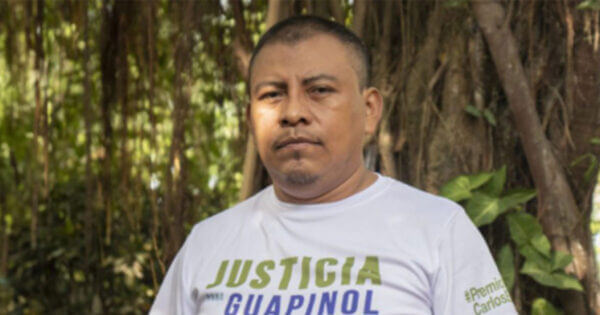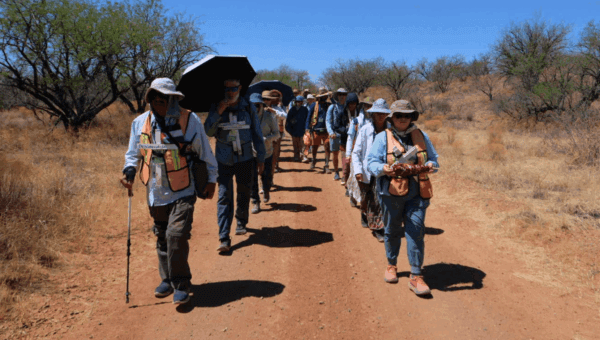Roughly 400 Kenyan police stepped off a plane in Port-au-Prince this week: the first contingent to arrive of an anticipated 2,500-member-strong force that is expected to deploy from Kenya in the coming weeks. Their goal is to assist Haiti’s beleaguered security forces, as they confront an escalating crisis of gang violence and public disorder.
Some Haitians greeted the new arrivals with cautious optimism. After all, Haiti has endured unspeakable violence for years with little reprieve in sight. The country’s former president was assassinated in 2021, and he and his successor, Ariel Henry, both led increasingly authoritarian governments that oversaw a complete breakdown in public safety.
Today, organized crime rings—operating as paramilitaries—control vast swathes of Haiti, subjecting ordinary people to extortion, sexual violence, and other atrocities. In recent months, hundreds of thousands of Haitians have fled their homes to escape this violence. As many as 2,500 people reportedly died from gang violence in Haiti in just the first three months of the year.
Amidst such rampant social chaos, long-overdue assistance from Haiti’s international partners is appreciated. But any such aid must be careful to avoid the mistakes of previous foreign interventions in Haiti, which resulted in widespread human rights abuses, corrupt mishandling of funds, and even a devastating cholera outbreak introduced by foreign troops.
Already, there are worrying signs about the future of Kenya’s deployment. The parameters of their mission are by no means clear. The Kenyan forces have little familiarity with the Haitian communities they will be policing. And most do not speak the local language (Kenya is a predominantly English-speaking country, whereas Haitians speak Kreyòl).
The future political sustainability of Kenya’s intervention is also unclear, due to domestic discontent with Kenya’s current government. The same week as the Kenyan forces arrived in Haiti, protesters stormed Kenya’s parliament building, in protest against the government’s recent tax overhaul.
The Kenyan government responded to these protests with a crackdown, in which police reportedly abducted and disappeared civilians from their homes—raising serious questions about whether these same police forces can be a credible solution to Haiti’s public safety crisis. Kenya’s mission to Haiti has also faced lawsuits domestically that may block it from moving forward.
Perhaps most concerningly, the Kenyan mission betrays the involvement of the same colonial Global North countries that have undermined Haitian democracy and independence for centuries.
Despite nominally being waged under Kenya’s flag, the recent police deployment to Haiti is fully backed and funded by the United States. President Biden’s administration championed the intervention diplomatically, and his government has also provided the bulk of the financing to make it possible.
Haitian civil society leaders are not opposed in principle to this U.S. support—but they are also aware that past U.S. involvement in the country has failed to engage the support of the Haitian people and have not been Haitian-led. There are warning signs that this history could be repeated: such as a recent report in Foreign Policy, which notes that many Haitians are confused about the presence of U.S. planes in what is supposed to be Kenya’s intervention.
Both U.S. and Kenyan involvement in Haiti are therefore welcome, in our partners’ eyes—but only so long as they serve the interests of (and are subject to) the leadership of the Haitian people. We therefore insist that, if U.S. involvement in Haiti’s domestic security situation is to continue, it must satisfy the following three conditions:
- It must be collaborative. As we have said all along, any lasting solution to Haiti’s social crisis must be a Haitian-led solution. As such, any foreign partners aiming to help Haiti’s people must do so in collaboration with—and following the lead of—Haiti’s civil society leaders. To this end, our Haitian partners have identified the following primary goals for the operation: the protection of the Haitian population, the need for oversight and accountability of the operation, and the need for any foreign intervention to serve a long-term vision for Haiti. The Kenya-U.S. intervention must keep these goals front-and-center as they plan and conduct their operations.
- It must be transparent. The U.S. and its partners must include Haitians from all walks of society, including civil society, in its activities inside the country to prevent the mistakes of the past.
- It must be strategic. Haiti’s people deserve support that is thoughtful, narrowly tailored to the needs on the ground, and carefully planned in order to ensure that it does not backfire and lead to other negative consequences, as so many foreign interventions in Haiti have in the past. This means that any foreign troops, from Kenya or elsewhere, must be deployed only under the supervision and guidance of Haitian people who understand the local situation.
Subject to such conditions, Kenya’s U.S.-backed operation in Haiti could ultimately be a success, bringing much-needed safety and relief to Haiti’s citizens. But it must honor the principle of a Haitian-led solution to the crisis, rather than trying to supersede it.
If you wish to support our Haitian partners as they work to advance the goal of a Haitian-led solution, a contribution in any amount to UUSC will help us backstop our partners and support their advocacy goals in the U.S. You can also sign up here for our email list to receive ongoing updates and opportunities to take action.



